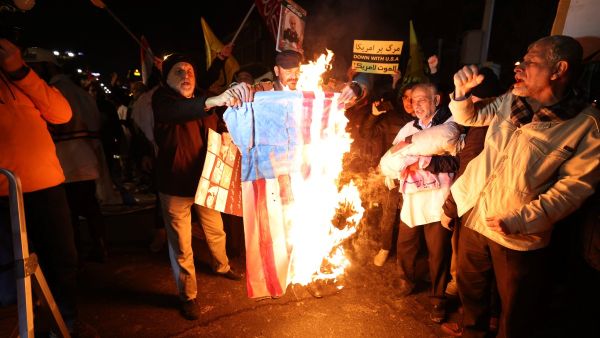The US and UK have launched air strikes on Houthi rebels in Yemen, in a major escalation of the conflict that has been raging for seven years in the Arab world’s poorest nation.
The strikes, which targeted more than a dozen sites used by the Iran-backed group, were in response to repeated attacks by the Houthis on commercial vessels in the Red Sea. The Houthis, who support Hamas, claim to be targeting ships linked to Israel, which is waging a war on Gaza.
The US and UK strikes have drawn mixed reactions from the international community and raised questions about the implications for regional stability and security. Some analysts warn that the strikes could trigger a wider war, as the Houthis have vowed to retaliate and Iran has condemned the attacks as a violation of Yemen’s sovereignty. Others argue that the strikes could deter further Houthi aggression and pave the way for a political solution to the crisis.
The Yemen war began in 2014, when the Houthis seized control of the capital, Sanaa, and ousted the internationally recognized government of President Abd-Rabbu Mansour Hadi. In 2015, Saudi Arabia led a coalition, also including the United Arab Emirates, that went to war to try to overthrow them. The coalition received logistical and intelligence support from the US and other Western countries, but faced criticism for causing civilian casualties and a humanitarian catastrophe. The war has killed more than 230,000 people and displaced millions, according to the UN.
The US and UK strikes mark a shift in the Biden administration’s policy on Yemen, which had previously announced an end to its support for the Saudi-led offensive and a renewed diplomatic effort to end the war. However, the US and UK have also expressed concern about the Houthi attacks on shipping, which threaten a vital trade route and pose a risk to global oil supplies. The US and UK have accused Iran of supplying the Houthis with advanced weapons, such as drones and missiles, that enable them to strike targets across the region.
The strikes have also exposed the diverging interests of the Arab countries involved in the war. Saudi Arabia, which shares a long border with Yemen and views the Houthis as a proxy of its arch-rival Iran, has welcomed the US and UK action and reiterated its commitment to restoring the legitimate government in Yemen. The UAE, which withdrew most of its forces from Yemen in 2019 and has pursued a more pragmatic approach to Iran, has kept a low profile and avoided commenting on the strikes. Oman, which has played a mediating role between the warring parties and hosted talks between the US and Iran, has called for restraint and dialogue.
The Yemen war is intertwined with the broader dynamics of the Middle East, where multiple conflicts and rivalries are playing out. The US and UK strikes come amid a tense situation in Gaza, where Israel has been bombarding the enclave for more than a month, killing tens of thousands of people and displacing hundreds of thousands others.
The strikes also coincide with the ongoing negotiations in Vienna to revive the 2015 nuclear deal between Iran and world powers, which the US withdrew from in 2018 and imposed sanctions on Iran. The fate of the deal could have a significant impact on the prospects for peace and stability in the region.
The US and UK strikes on Yemen have highlighted the complexity and dangers of the Yemen war, which has been largely overshadowed by other crises in the Middle East. The international community, especially the UN, has a vital role to play in facilitating such a process and ensuring that the humanitarian needs of the Yemeni people are met.
The Yemen war cannot be solved by military means alone, but requires a diplomatic and humanitarian solution that respects the rights and aspirations of all Yemenis.







